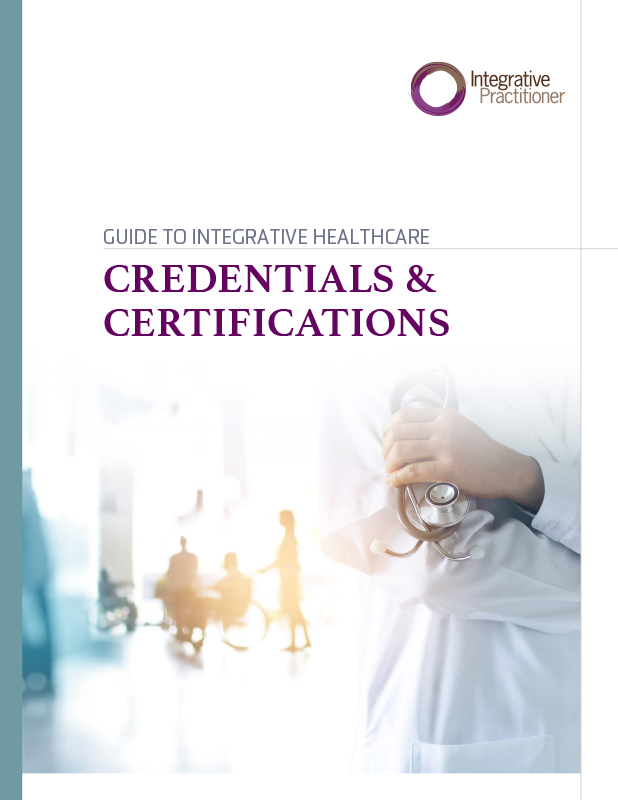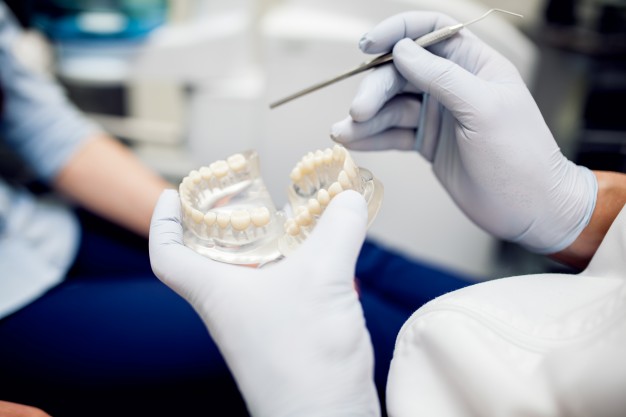Recent
July 23, 2024

The integrative healthcare community prides itself on being interdisciplinary. While this includes medical doctors and osteopathic doctors, it also includes chiropractors, naturopathic doctors, registered nurses, acupuncturists, registered dieticians, and everything in between. Credentials overlap, compete, and sometimes contradict one another. Certifications often do the same. Figuring out what the scores of post-nominal letters mean, what they certify, and how they affect patient care can seem an overwhelming if not impossible feat.

Integrative Practitioner is pleased to offer the Complete Conference Package, featuring all session recordings from the at the 2023 Integrative Healthcare Symposium in New York City. Watch and listen on your own schedule as the most sought-after practitioners, researchers, and educators of integrative healthcare offer their latest research and findings. Stay on the cutting edge of integrative healthcare and discover the latest practical applications to immediately enhance your practice.

Presented by: Nancy Gahles, DC, CCH, RSHOM(NA),OIM and Lorraine Gahles-Kildow, PhD
This half-day workshop is designed to bring awareness and solutions to the epidemic of burnout, Compassion Fatigue, Vital Exhaustion and one of its most devastating consequences, cardiovascular disease. Compassion Fatigue is one face of Burnout Syndrome that has overlapping symptoms which are not readily addressed. Vital exhaustion often overlooked as a continuum of sleep deprivation or “normal job requirement” leads to cardiovascular disease in both men and women and ranks as a high priority consequence of compassion fatigue.
Presentation of definitions, signs, symptoms and solutions based on evidence-based research along with cases and experiential involvement of attendees will be the focus of this half day workshop.
This workshop will be a co-presentation drawing from the integrative evidence-based best practices of Chiropractic, Homeopathy, Mindfulness in Meditation and Movement, Cognitive Behavioral Therapy, Positive Emotion Psychology and World Spiritual/Compassion Traditions. It will include active participation in exercises designed to experience/embody the subject matter presented.

Presented by: Barbara Bartlik, MD; Geo Espinosa, ND, L.Ac, IFMCP, CNS; Ronald Hoffman, MD, CNS, FACAM; and Janet Mindes, PhD
New, more holistic solutions to sexual problems are very needed. Hundreds of millions of dollars are spent annually on supplements to alleviate sexual symptoms, yet most are not adequately studied. Pharmaceuticals for sexual dysfunction are not fully effective, or well tolerated. Commonly prescribed medications cause sexual dysfunction, and many live with this reality. Medications also deplete micronutrients, which can contribute to sexual dysfunction, yet this connection is infrequently made.
Targeted micronutrient therapy and many other natural medicine and innovative mainstream strategies may be used to improve sexual function. What’s the impact of diet on sexual performance? Are there really aphrodisiac foods? What are the best functional medicine strategies for erectile disorder/ sexual pain? These and many other topics will be covered, such as use of traditional Chinese medicine, evidence for the benefits of the Mediterranean diet and omega-3 fatty acids, and the importance of parasympathetic up-regulation to sexuality.
In order for patients to improve sexual function, they often have to first adopt a healthier lifestyle. This improves blood flow, neurological functioning, and hormonal status, all of which are needed for optimal sexual health. A healthy lifestyle will enhance vitality and minimize the need for medications that cause sexual side effects.

This session will introduce participants to the evidence-based practice of music therapy by first explaining some of the mechanisms underlying music therapy, such as neuromatrix theory of pain, neurologic music therapy, and mind-body medicine.

This edition of the Integrative Practitioner Digital Summit focuses on brain health.


Presented by: David Bouley and Mark Hyman, MD
Mark Hyman, MD, interviews world-renowned chef, David Bouley, at the 2020 Integrative Healthcare Symposium in New York City.

Presented by: Myles Spar, MD, MPH
This session discuss the top health concerns of men and the role integrative approaches plays in these concerns. Using published studies and my experience as an integrative medicine researcher, educator and clinician, the session will show data on what has been shown to make a difference in men’s health behaviors and how that translates into years of life saved. The session will present case studies representing general avatars of typical male patients, providing tools to successfully equip practitioners to attract, engage, retain, and help men in their integrative health practices.

In his presentation on holistic dentistry, Dr. Gross, DDS, will discuss using nutrition to cure tooth decay and improve bone regeneration. He will also review alternative to root canals, mercury